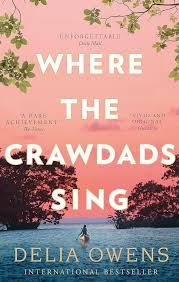15. The Game
byThe Game in Chapter 15, set in 1960, is a turning point for Kya, as she begins to experience the emotional turbulence of connecting with others. Known as the Marsh Girl, she has spent most of her life isolated, living alone in the swamp, abandoned by her family. The chapter begins with Kya’s quiet engagement in a game of anonymous gift exchange with a mysterious boy, marking the start of a delicate, tentative bond. She finds herself strangely comforted by this simple game—an exchange of items like feathers and small trinkets that allow her to share a piece of her world without revealing her identity. In this connection, Kya discovers the possibility of understanding and closeness, and it ignites a longing in her heart for a relationship that doesn’t feel as fleeting as the others that have come before.
In a small but significant act, Kya leaves a tail feather from an immature bald eagle on a stump. This is a personal and meaningful offering, representing not just the beauty of the marsh but also Kya’s willingness to trust someone in her life once again. The gesture highlights her yearning for a connection, while also acting as a step toward breaking the solitude she has embraced for so long. In return, she receives a gift, further deepening the bond between them, even though their identities remain concealed. This exchange fosters a sense of hope in Kya, showing her that someone—despite her isolation—understands and respects her place in the world.
As the days unfold, Kya’s inner struggle intensifies, torn between her longing for connection and the deep-rooted need for independence. In a powerful moment of self-realization, Kya cuts her hair, an act that signifies her desire to reinvent herself and move beyond the past. This small act of change takes on a much greater significance, reflecting her ongoing journey of reclaiming control over her life after being abandoned by her family. But even as she makes this personal transformation, Kya is confronted with painful reminders of the family she lost when she discovers a bottle of nail polish, bringing back memories of her mother and sisters, and the overwhelming feeling of being abandoned.
The next morning, Kya finds a red-and-white milk carton waiting for her, a small, thoughtful gift that includes a spark plug for her boat and seeds for planting. This offering stands as a symbol of understanding, as the anonymous giver has clearly taken the time to consider Kya’s practical needs and the struggles she faces on a daily basis. This thoughtful gesture is more than just an exchange of items; it represents a subtle yet profound form of empathy that resonates deeply with Kya. It reflects the deep connection Kya is starting to experience with this person, someone who, though still unknown, shares in her solitude and understands her world in a way that no one else has.
But the chapter takes an emotional and revealing turn when Kya finally meets the boy behind the gifts—Tate. Tate, who had once guided Kya through the marshes as a child, now stands before her, breaking the unspoken rules of their quiet game and initiating contact. His familiarity, though comforting, stirs conflicting emotions in Kya—his presence marks the first time in a long while that Kya has been confronted with the possibility of human connection, yet it also raises her fears of being hurt again. As Tate looks at her, something shifts between them—what began as a game, with its anonymity and quiet exchanges, now becomes a more personal and emotionally charged interaction.
The Game shows Kya’s delicate exploration of intimacy, trust, and vulnerability. The chapter expertly navigates the complexities of human emotion, as Kya begins to open herself to the possibility of connection, even while the scars of her past still affect her. As she tentatively engages with Tate, she finds a spark of hope that perhaps, after all these years of isolation, she is not beyond the reach of love or companionship. Yet, even as she grows closer to Tate, Kya remains guarded, still wrestling with the internal conflict of needing human connection while fearing the pain of abandonment. This chapter encapsulates the complexity of Kya’s journey—learning how to trust again while grappling with the emotional weight of her past and the uncertain future that lies ahead.


